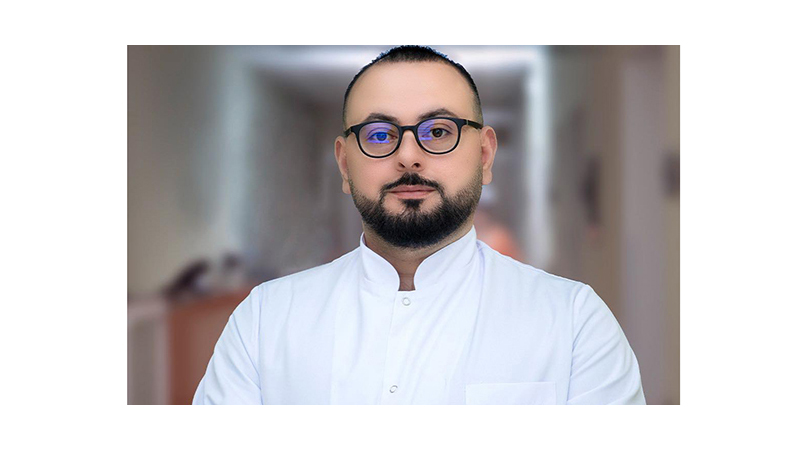
“Abortion Should Be Performed by Experienced Doctors” — Obstetrician-Gynecologist, Surgeon Raoul Azimov
- — What problems do women most often consult gynecologists for in Azerbaijan?
- — As of early 2022, women made up about 50% of the country’s population, around 5 million people. Since most women live in Baku, I’ll first answer this question in the context of the capital. The main complaints are vaginal discharge, menstrual pain, weakness, and hot flashes during menopause and climacteric periods. Every woman should have a check-up at least once a year so that diseases can be detected and treated on time. In the regions, the main problems are uterine prolapse and urinary incontinence, which often occur as a result of pregnancy and childbirth. Women suffer from these problems for a long time but often don’t see a doctor because of embarrassment. Menstrual dysfunctions are also common: many patients experience prolonged bleeding and irregular cycles.
- — Early marriages often occur in the country, especially in the regions. What risks do they pose to women?
- — Early marriages are widespread in all regions. In addition, marriages between relatives are common. Despite increased awareness and a rise in diseases, consanguineous marriages still exist. Early marriages have existed throughout history, but with relevant laws, their number has decreased. At ages 16–17, a girl’s body is still developing; ovaries and hormones are still maturing. Physical appearance—height, weight—is not an indicator of readiness for marriage. Brain development is also important. Everything should develop harmoniously. Early pregnancy is dangerous both for the woman and the child. There can be premature births, underweight babies, bleeding during delivery, brain development disorders in newborns, intrauterine growth retardation — all of which pose serious threats. Therefore, early marriages are unacceptable.
- — According to statistics, despite educational efforts, the number of selective abortions is increasing. What are the consequences of abortions for women’s health?
- — In our republic and Turkey, abortions are allowed up to the 10th week of pregnancy at the family’s request. Terminating a pregnancy at later stages without medical indication is a crime. Sometimes pregnancy must be terminated for medical reasons. But there are cases when women want to have abortions without medical reasons. The main reasons are economic and social difficulties that prevent the family from affording another child. Although abortion may sound simple, it is actually a procedure with high risks and must be performed only by experienced doctors. Severe bleeding may occur, which can lead to removal of the uterus even in young women. Adhesions can also form inside the uterus, which may reduce or stop menstruation, and sometimes cause infertility. Women who do not want to become pregnant should consult a doctor about contraception. The most popular methods are intrauterine devices and medications, but they are not suitable for everyone — specialist consultation is necessary.
- — Nowadays, pregnant women increasingly choose cesarean section. Is this normal? What complications may arise?
- — I always say: “Everything natural is beautiful.” Natural childbirth is a physiological process. I do not support cesarean section without medical indications. Unfortunately, many women choose it as an easier way to give birth. At first glance, it may seem convenient, but serious complications can arise later: adhesions in the abdominal cavity, chronic pain, the need for repeated cesareans in subsequent pregnancies. There are also disadvantages—long healing of the surgical wound, inability to hold the baby immediately, prolonged bed rest recovery, etc.
- — Despite advances in medicine, maternal mortality during childbirth still occurs. Can deaths during childbirth be completely prevented? What should a woman do to have a successful natural delivery?
- — The main cause of maternal mortality is home births. If bleeding occurs, the woman may not be transported to the hospital in time. After delivery—whether natural or cesarean—uterine atony can occur. If not treated promptly, death from blood loss may result. To ensure a successful delivery, a pregnant woman should have regular check-ups—monthly, weekly, or even daily if needed. She should be under the supervision of experienced doctors. Attention should also be given to factors such as abnormal placental position, which can cause bleeding during delivery.
3 January 2023
Loading...